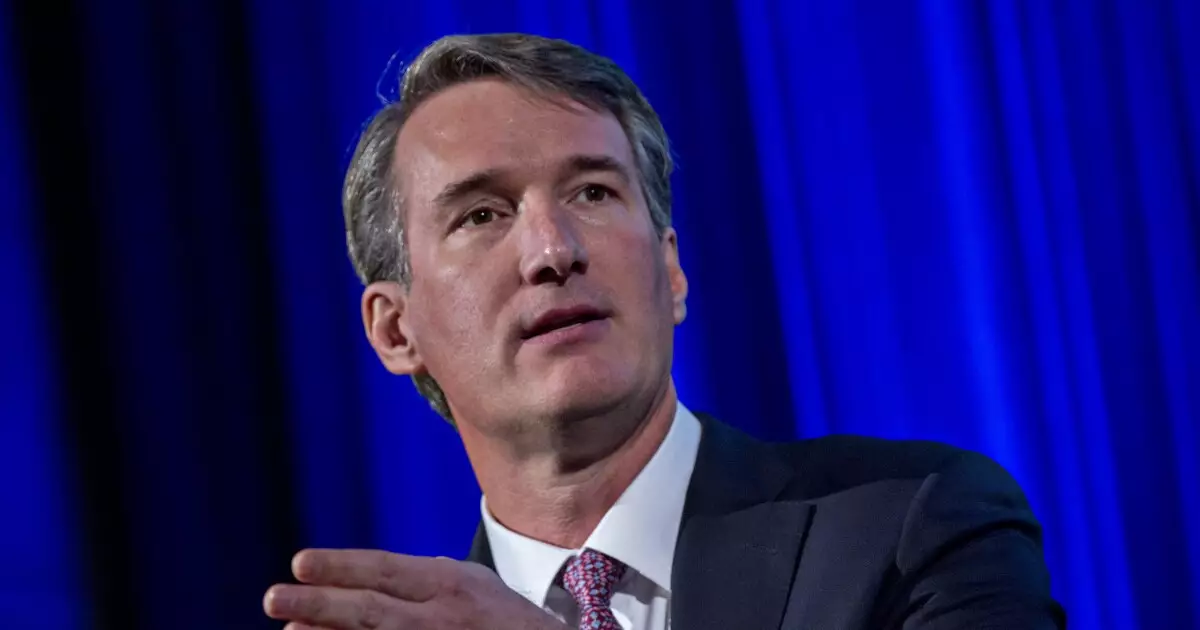The political landscape in Virginia is currently witnessing a significant divergence in fiscal policy, as lawmakers express their intent to implement a billion-dollar tax rebate amidst the backdrop of budget surpluses. This move, while popular among constituents, stands in contrast to the proposals put forth by Republican Governor Glenn Youngkin, who has ambitions that extend beyond state politics. The outcome of this financial tug-of-war will have lasting implications for Virginia taxpayers and may shed light on broader trends in state fiscal policy across the nation.
At the heart of the tension lies a collaboration among both houses of Virginia’s Democrat-controlled General Assembly to advocate for direct rebates to taxpayers. Specifically, these proposals suggest disbursing $200 to individual taxpayers and $400 to couples. In addition to these rebates, lawmakers are looking to enhance the standard state income tax deductions, aiming to provide relief amid rising living costs. This initiative underscores a collective desire to ensure that Virginians benefit directly from the state’s financial successes.
Governor Youngkin, however, has proposed an alternative route for delivering these rebates—through adjustments to the state’s personal property tax on vehicles. His administration maintains that these changes would effectively generate the needed funds while still aligning with fiscal responsibility. The motorcycle of politics in Virginia, often marked by conflicts between the executive and legislative branches, has once again revved up, highlighting the challenges of reconciling differing fiscal philosophies.
Past Conflicts and Current Challenges
Governor Youngkin’s past interactions with the General Assembly have not always been harmonious. His failure to pass certain ambitious projects, such as the construction of a new sports arena in Alexandria, serves as a reminder of the prolonged and complex negotiations often emblematic of Virginia’s political theater. The reincarnation of this discord raises questions about whether Youngkin will be able to garner sufficient support for his tax strategies, especially in light of the looming deadline for finalizing the budget on February 22.
The ongoing budget negotiations are a delicate dance, characterized by a variety of interests that need to be balanced. If consensus cannot be reached, Virginia may ultimately continue operating under its current budget—something both lawmakers and the governor likely wish to avoid. The stakes are high, as the outcome will dictate how taxpayers experience the benefits of a robust state economy versus the administrative strategies employed to manage surplus funds.
Virginia’s approach to handling its budget surplus is reflective of a broader national trend wherein numerous states with surplus revenues are opting to issue tax rebates to their residents. Economists and policy analysts have debated the efficacy and sustainability of such measures, often warning that while rebates may appease voters in the short term, they could undermine long-term budgetary integrity. Nevertheless, the political appeal of directly returning funds to taxpayers remains compelling, particularly in an age of increasing economic uncertainty.
Senate Minority Leader Ryan McDougle noted the importance of ensuring that citizens benefit from surplus revenues, reinforcing the notion that, irrespective of the details, the ultimate goal remains the financial well-being of Virginians. His sentiment encapsulates the bipartisan understanding of the political necessity to deliver tangible economic benefits to constituents, even amidst legislative disagreements.
Recent evaluations by Fitch Ratings, which bestowed a AAA rating upon Virginia’s general obligation bonds, signify substantial confidence in the commonwealth’s fiscal health. This high rating reflects the financial prudence of state managers and their adeptness at navigating economic challenges. Economists predict that solid revenue growth will persist, further strengthening Virginia’s financial capacity to meet its obligations and carry out taxpayer rebates responsibly.
As the General Assembly and Governor Youngkin edge toward a resolution, the choices made in the coming weeks will resonate beyond the immediate fiscal year. They will shape the future of Virginia’s economic management and set a precedent for how surplus funds can be allocated in a manner that satisfies the dual demands of fiscal responsibility and taxpayer relief. The implications of this showdown will undoubtedly reverberate throughout Virginia’s political and economic landscape for years to come.

